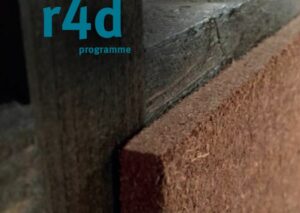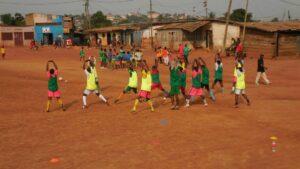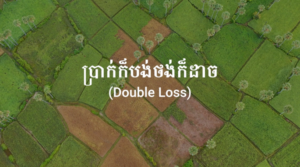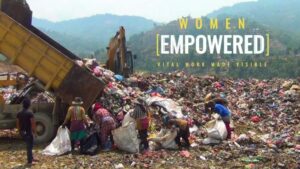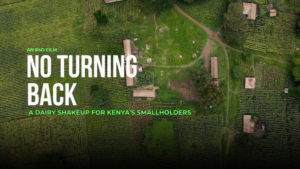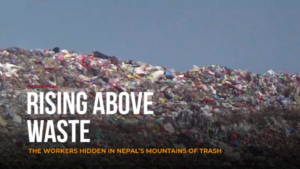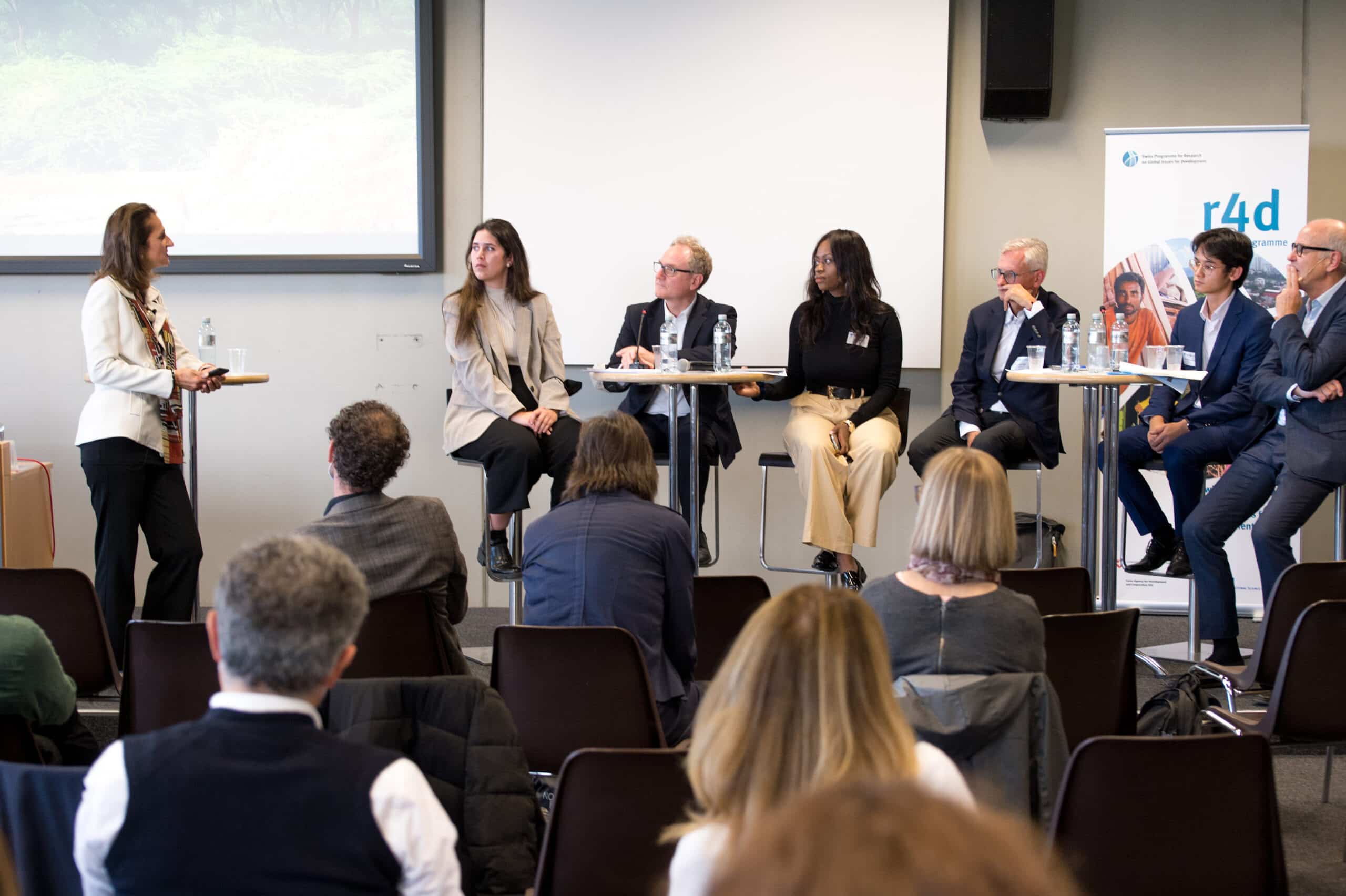
Job Creation and Conditions for a Social and Environmental Impact
At the hybrid r4d conference on 28 October 2021, an intergenerational group of speakers, composed of researchers and practitioners from Switzerland, India, Peru, Bangladesh, Bolivia and Ghana, and a diverse audience of experts from around the world shared multiple perspectives. Young social and environmental activists from Switzerland presented their views and ambitions for the future.
The conference participants discussed research findings and contributed from their various organisational and individual perspectives to the discourse on job creation, decent work conditions and the economic, social and environmental impact of recent developments in national and international labour markets. Two panel discussions provided a critical review of examples from research projects in the textile and agricultural sectors and the future implications for such projects in low- and middle-income countries. The Sustainable Development Goals (SDGs) 5, 8 and 10 formulated in the UN Agenda 2030 served as a common reference. One focus was set on small businesses in the textile industry in Bangladesh as part of the global textile value chains and the questions that arise in connection with the rapid growth of the industry. In this context, the r4d research project “skills for industry” presented some of its research results. Another focus lay on research on transformation in rural agrarian societies (r4d FATE Project) in Bolivia and the consequences for small-scale producer families, with a particular focus on gender relations. In a third focus, the conference participants dicussed the policy implications and the impact of framework conditions in Ghana to the development of the industry as well as the service and agricultural sectors.
Watch the 5:06minvideo-clipfor statements and impressions of the conference.
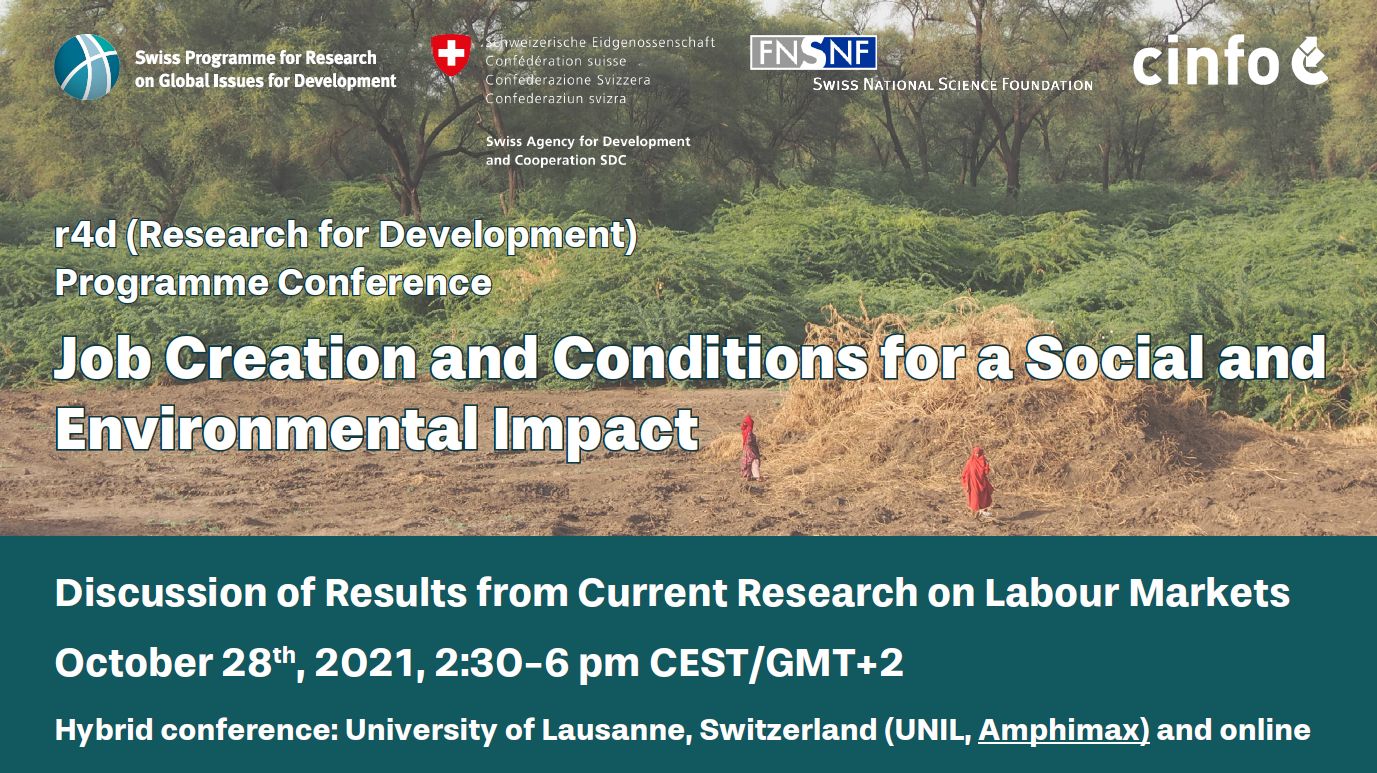
The conference raised several questions and provided room for discussion: how can sustainable development be ensured effectively in the cooperation programmes in the field of industrial and technical economic development? How does the feminisation of certain sectors relate to women’s empowerment – and how can development initiatives adequately respond? How important are labour conditions to ensure decent work (SDG 8) and reduced inequality (SDG 10)? When does economic development really benefit the wider population? How are rural livelihoods maintained? How can the resilience of low-income groups be strengthened in a process of industrialisation and export-orientation ?
Read the summary and key findings of this interesting day for some answers and reflections related to these themes.
Related Posts
Sources
This event was co-organised by the Swiss Programme for Research on Global Issues for Development (r4d programme) and cinfo on 28 October 2021.
Further information
See the conference website for detailled information on the agenda, the conference participants and an excerpt from the panel discussion.
